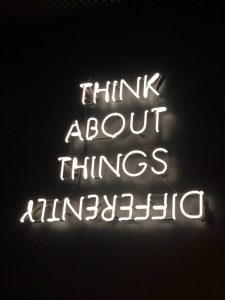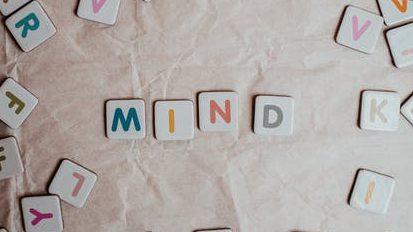There are many different parts of ourselves that make up our identities. These parts influence how we view the world, our self-perception and how we feel or respond to things at various points in our lives.
For those who struggle with an eating disorder, it can be especially challenging to take notice of what parts of their identity are harmful, and which parts are helpful. When one is in the depths of their eating disorder, it can feel as though the harmful voice is the loudest or only voice, and therefore, it tends to be the one listened to and believed in the most.
Deciphering your authentic voice from the harmful voice is one of the first steps to reclaiming your identity. When one is enmeshed with their eating disorder for a long amount of time, it can cause extreme anxiety to even consider living without it. This anxiety often leads to some common questions such as:

“Who am I without my eating disorder?”
“What will people think of me if I am no longer striving for perfection?”
“What if I lose control and become a different person?”
The fear of the unknown is common with any sort of radical change we undertake, especially when it comes to letting go of the hold that an eating disorder has on identity and self-worth. Leaning into the discomfort of surrendering your eating disorder identity and taking back your authenticity involves questioning various cognitive distortions.
By facing your fears and curiously probing why you identify so strongly with your eating disorder, you can begin to more clearly hear and trust in your helpful, authentic self.
What are Cognitive Distortions?
Cognitive distortions are irrational and oftentimes exaggerated thought patterns that usually develop over time, convincing us of something that isn’t true. Cognitive distortions can be common in individuals with eating disorders, and these thoughts have a great influence on emotion and behavior.
Replacing a distorted thought with a rational thought is one way to challenge the eating disorder identity and reclaim your authentic self. These rational thoughts can be viewed as the utilization of your “Wise Mind”, which is a blend of your “Emotional Mind” with your “Logical Mind.”
5 Common Cognitive Distortions
Here are 5 of common cognitive distortions and examples of how to challenge them by utilizing your Wise Mind.
All-or-Nothing Thinking
- Distorted Thought: “ I am fat, I am unlovable.”
- Wise Mind Challenge: “Is this thought helpful in any way? How likely is it that this thought is true? How would I feel if I did not have this thought?”
Overgeneralization
- Distorted Thought: If I don’t lose weight, nobody will ever love me.
- Wise Mind Challenge: Am I relying on the actual evidence, or is it possible I am letting my feelings guide my thinking about this? What would I tell a friend if they told me this thought about themselves?
Fortune Telling
- Distorted Thought: I will never overcome my eating disorder and therefore never be able to have children.
- Wise Mind Challenge: When have I ever been right about predicting the future? Is it possible I could be wrong this time? What power do I have to change my future?
Emotional Reasoning
- Distorted Thought: I feel like a failure in my recovery, so that means I will never succeed in my life.
- Wise Mind Challenge: (Put your thoughts on trial) If I were to make this statement in court, could I persuade a judge that these feelings are facts? How would my case hold up?
Should Statements
- Distorted Thought: I should lose more weight, otherwise people won’t take me seriously as a yoga teacher.
- Wise Mind Challenge: According to whom? Should everyone see it this way? Why or why not? Are there yoga teachers who you admire and why?
Changing your thoughts takes time. It can be helpful to talk about it with others or a therapist to know that your are not alone and to reality check potential distortions. Try to be patient and compassionate with yourself. Practice over perfection!
Would you like to talk with us about starting counseling? Click below for a free call to learn more.
Written by Emily Bachmeier, MA


